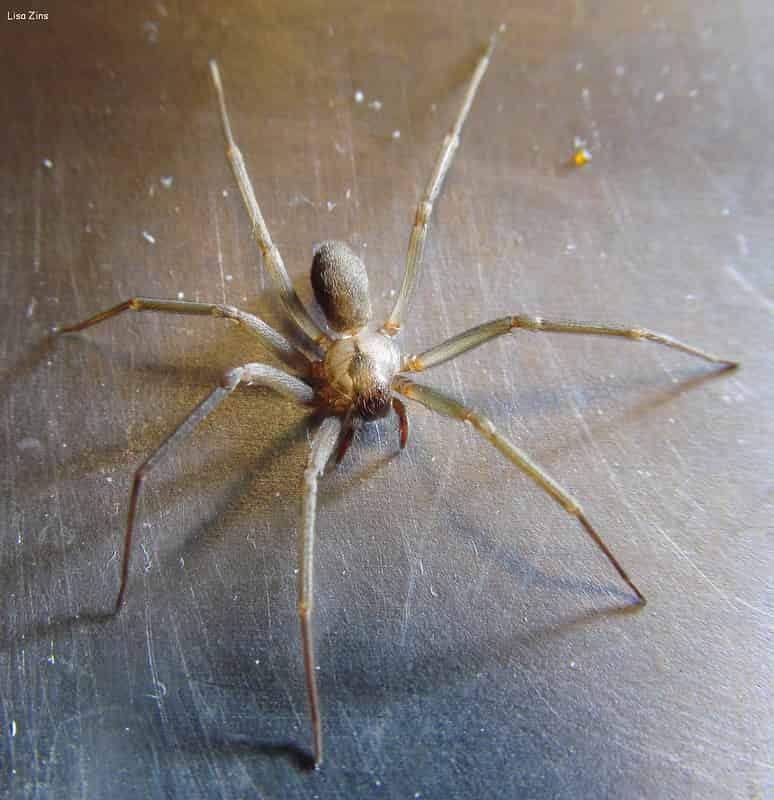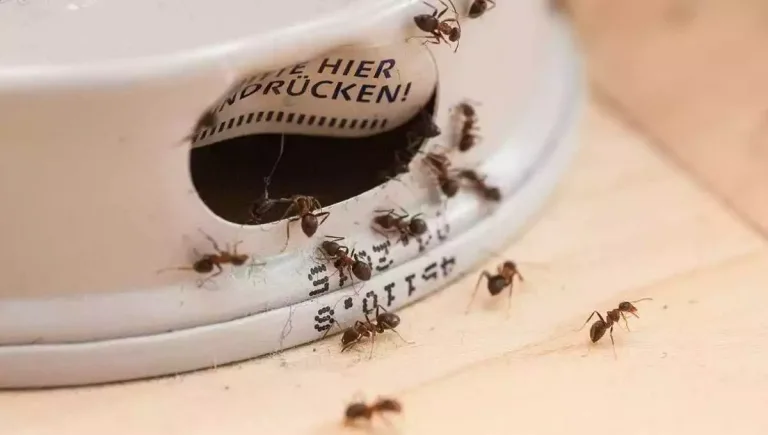How to Keep Spiders Out of Garages Once and For All

There are over 3,000 types of spiders in North America, and some of these might be calling your garage their home right now. While most species of arachnid are generally harmless, arachnophobia is a widespread fear, with most intolerant to the idea of sharing their living spaces with these uninvited pests. If you’re one of these people, this article will teach you how to keep spiders out of garages.
You may be one of the lucky few who aren’t afraid of these eight-eyed, four-legged squatters, but you have to agree that a spider-riddled garage is messy and can lead to a full-on infestation. If you aren’t careful, sticky cobwebs will be the least of your worries when spiders’ eggs hatch in scores.
So what steps can you take to curb your spider problem once-and-for-all? How can you act today to prevent invasions in the future? Read on, and you’ll soon find out!
This post contains affiliate links. This means Yard Blogger may earn a commission should you make a purchase using any of our links. Please refer to our full affiliate disclosure policy for full details.
Here’s a Quick Pro Tip!
The absolute best way to get rid of spiders in your garage is by using spider glue traps. This will literally do 90% of the work for you.
We personally recommend the highly effective and popular 72 pack of Catchmaster Pest Traps on Amazon.
Depending on bad your spider and bug problem is, having them in bulk is going to save you a lot of money and time.
Make sure to place the Catchmaster glue traps near any entrance points (like gaps in doorways or cracks in your foundation).
You can then dispose of the glue traps and will give you peace of mind that no dangerous spiders are lurking around your garage.
Why Do Spiders Seek Refuge In My Garage?
Spiders thrive under dark and dank conditions, which makes the average garage in America appealing for several types of pests, not just spiders. This need intensifies during winter when pregnant spiders seek out warm and dry places to lay their eggs before springtime.
Another reason you might be finding more spider’s nests is the increased presence of insects, such as moths and flies, in your garage. Spiders follow their prey, which may very well be in your garage.
The best natural deterrent for spiders and other unwelcome pests is an uncluttered, dust-and-debris free garage. Prevent the onslaught of household invaders with an overdue spring-cleaning. Insects, especially flies, are attracted to mess, especially garbage – don’t leave old food and yesterday’s trash lying around if you don’t want house invaders taking up residence in your garage.
A Guide on How to Get Rid of Spiders in Garages
Ditch What You Don’t Use
Are you guilty of hoarding items that were last used more than a decade ago? This could be the reason for your current spider problem. Spiders do not discriminate – wood, plastic, or metal – they use your junk as hiding spots. Arachnids especially love unused and unsealed boxes to lay their eggs and weave their webs. So if you have discarded boxes that you’re holding onto, fill them with items that you plan to keep – a tightly packed box won’t attract arachnids.
Keep Things Clean and Tidy
Dark crevices aside, spiders are found where there’s dust and dirt. Vacuum or sweep your garage weekly to keep these cretins away. Cleaning doesn’t just deter spiders but also removes spiders, their eggs, and cobwebs from the area. Despite their seemingly indestructible appearance, a spider’s soft abdomen is destroyed by the suction action of a vacuum.
If you use your garage as a working space, remember to clean up after yourself once you’re done. Remove empty boxes, and piles of paper, or keep them elevated and away from the walls where spiders scurry about.
Monitor Your Electricity Usage
It’s a commonly known fact that spiders prefer to dwell in the dark. But if that’s the case, why do you see spiders moving around in well-lit areas?
The answer to this has been briefly discussed; spiders follow their prey. Moths and other kinds of insects are instinctively attracted to artificial lighting, and where there are a plethora of moths, their predators are close behind.
One way to get rid of spiders in garages is to eliminate their natural food supply. Do this by swapping artificial lighting for natural sunlight during the day and turning off your garage lights at night. If there is no feast, arachnids have no reason to stick around.
Close Off Entry Points
Spiders enter our living and working spaces because we let them. If you haven’t spider-proofed your home, now’s the time to do it.
Spiders squeeze their way through tiny holes in the walls and roofs of garages. Cover these small cracks and openings using special sealants, such as caulk or a paste containing petroleum jelly and permethrin powder, all of which you can purchase at your local hardware store.
Placing protective screens over your doors and windows will further increase your chances of keeping spiders and other pests out. If these measures don’t work, flypaper, a sticky-coated paper covered in poison might.
Nature’s Pest Control: Adopt a Pet
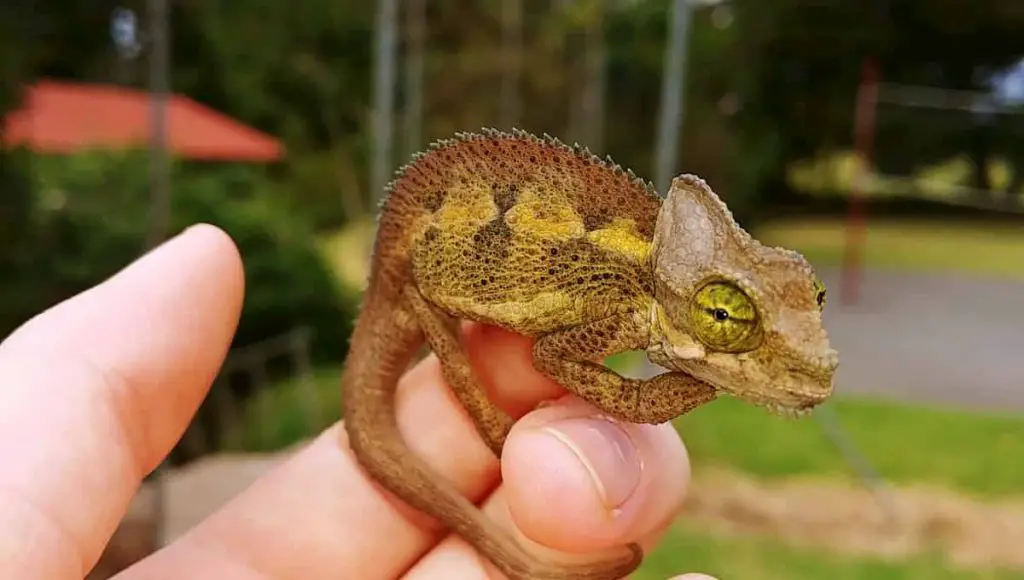
Sometimes, the interference of people or the use of chemicals isn’t needed to remove spiders. In nature, spiders are preyed upon by the following animals:
- Lizards, such as geckos, and chameleons, found in the southern U.S, get their primary source of protein from spiders, along with specific insects. They can eliminate most if not all spiders in a controlled setting, like the confines of your garage.
- Unsurprisingly, birds feed off most types of spiders, excluding larger breeds, such as Tarantulas. If given the opportunity to fly, domesticated pets also eat spiders. Be careful, though; small birds can get caught up in un-unravelable webs. Although spiders aren’t known to eat birds, it happens on rare occasions.
- Other spiders. Are you arachnid-obsessed? Spiders owned as pets are known to eat their dangerous-to-humans counterparts. You’ll be protected by creepy-crawlies that bite while controlling the spider population in your garage.
Clean Up the Outdoor Areas Near the Garage
Throw out racked up leaves and piles of organic waste, and move stacks of firewood out of the way because these are viewed as the perfect homes by spiders. There’s also the chance that these arachnids might relocate from the outdoors to inside your garage when it gets colder.
The Best Way to Get Rid of Spiders in Garages Naturally
It’s natural to reach for a can of Doom when you see a creepy-crawly rapidly advancing toward you. But before you spray, consider the harmful toxins found in some pesticides and the effect they could have on your health and their lasting impact on the environment. The residue of specific brands of chemical sprays can stick around for two weeks, making loved ones and pets sick. And sometimes, they don’t even work.
If you want your invasion gone without polluting the areas around you, these are alternative methods you can use instead:
Spiders taste and smell with their feet, utilizing their front legs to identify scents before they move forward. If they dislike the fragrance, they won’t walk over the surface, which could refrain them from entering your garage entirely. Natural insecticides work on this principle by taking advantage of an arachnid’s sensitive senses.
Apple Cider Vinegar
Spiders dislike the aroma of vinegar and its sour taste, which makes it an effective solution to drive them out without having to kill them. Mix vinegar with citrus-scented soap and leave the liquid solution on a plate near popular hiding spots. Repelled by the smell, a swarm of spiders will eventually leave the area, and hopefully, in time, withdraw from your garage.
Peppermint Oil
Peppermint oil is another natural insecticide that spiders hate. There are no proven reasons why, but it’s most likely because peppermint oil is highly fragrant. Bearing in mind that arachnids smell and taste with their feet, they don’t want to crawl through strong odors.
Not only does peppermint oil contain natural insecticide properties, but also peppermint plants and leaves. Place these plants at strategic points of the garage or sprinkle leaves in places overrun by spiders.
Essential Oils
Peppermint oil is one of the many essential oils that spiders avoid. Lavender, citronella, cedarwood, and tea tree are also on the list of fragrances by which spiders are repelled.
What are Other Household Goods Useful in Removing Spiders?

Take a look in your fridge and around your home, and you might be able to find items that are useful for your spider extermination mission, such as garlic and pepper and scented candles. Fresh lemon slices with the peel side-down lined up in a row also deter spiders from entering inside, while cinnamon sprinkled around your garage helps to remove spiders, as well as ants.
It’s possible to get rid of unwanted arachnids from your garage without spending a penny or having to call in the professionals.
These natural repellents might well be effective on their own, but for the best possible results, mix two or three remedies to create a potent concoction that’s deadly for spiders.
The Truth Behind Spider Repellents for Garages
Controlling your spider population is a trial-and-error process, what works to remove other household pests won’t necessarily work on formidable spiders. Spiders aren’t strictly insects but arachnids, and so what works for one species is less unlikely to work for another.
A little known fact: many types of spiders are immune to conventional chemicals that are known to kill other insects. The reason for this is two-fold. Spiders have long legs. These long legs defend the rest of the body against harmful residues sprayed on surfaces.
Spiders also don’t have a circulatory system that can transfer the poison from the legs to the bloodstream to penetrate the vital organs, which means they are likely to survive indirect contact with sprays.
What’s even more interesting to note: spiders don’t groom their bodies with their mouths like other insects, which means their chances of ingesting pesticides are low.
The most effective way to kill a spider is to make direct contact with a spray, a whack of the newspaper, or whatever your preferred weapon of choice is. Ergo, “contact kills” works best. However, there are exceptions to this rule. Spraying in cracks, crevices, and other popular spider hangouts could be effective because it is more likely that the toxin will touch the abdomen and prove fatal.
Best Spider Repellents for Garages
It’s essential to do your homework before you set out to buy chemical sprays. Read Amazon reviews online before spending your hard-earned dollars. Otherwise, read up on our recommended repellents that are currently available on Amazon, including their pros, cons, additional features, and instructions on how to kill spiders in garages.
Hot Shot Spider and Scorpion Killer

This pesticide removes an array of pests, including spiders, so not only will your garage be free of fanged creepy crawlers, but also their prey. The spray is not guaranteed to kill spiders, but it will remove their food supply, which forces them to hunt elsewhere.
Some of the key benefits of Hot Shot Spider & Scorpion Killer are:
- Long-lasting residual control: enjoy a pest-free house for up to 16 weeks.
- It provides broad coverage.
- It’s water-based, which means no greasy stains or left-behind residue.
- Kills pests
- Repels spiders
- For indoor and outdoor use
The ingredients found in the product are organic, but please bear in mind that they are dangerous to honey bees, as well as other non-targeted species when using the pesticide.
Features:
- Active ingredients: lambda-cyhalothrin and prallethrin.
- Available in one pack or two cans.
MDXconcepts Organic Home Pest Control Spray

Evict spiders without harming your family and pets using MDXconcepts Organic Home Pest Control Spray. The product is quality tested and pyrethroids-free, which are harmful toxins that can cause nausea, vomiting, and breathing problems. It could also negatively impact our nervous system if ingested or breathed in.
Comprising vinegar and essential oils such as peppermint oil, rosemary oil, and spearmint oil, ingredients found in the spray are fine for humans and the environment but lethal for pests.
In short, the above repellent is safe to use around the family, fast-acting in removing cockroaches, fleas, mites, ants, scorpions, rodents and spiders, and is environmentally-friendly.
Features:
- Child-and-pet-friendly
- Uses organic toxins
- Chemical-free
- Instant repellent for a spectrum of pests.
Ultrasonic Repellents

Completely chemical-free, the Ultrasonic Pest Repeller Electronic Plug emits a frequency, inaudible to us humans and our pets, that repel bugs, rodents, and arachnids. The device will also not interfere with technology, such as alarm systems, computers, and electrical equipment.
The aims of this and other ultrasonic repellents are to drive out rather than to destroy home invaders. If you are looking for humane, non-kill methods for pest control, then this is the ultimate solution.
How it works:
Plug the device into an outlet and wait for the blue light to turn on. The ultrasound frequencies change so that the pest, i.e., the spiders, don’t become resistant to the sound.
Features:
- Air-powered source
- Comes with a lifetime assurance
- Three modes
- Easy-to-use
To sum up, ultrasound devices like the above are appealing because they are non-toxic to the environment, our bodies and incorporate non-kill methods that animal lovers might prefer.
How Do I Use Repellent Sprays?
Shake well before use. Spray along the surface of windows and other garage openings, as well as dark corners where spiders might be hiding. Remember to continually reapply for the best results, especially by the outside areas where downpours are likely to wash away most of the repellent. Another method is to soak cotton balls in repellent and leave them in areas that are usually spider-filled.
It takes longer for natural repellents to work than conventional pesticides, so you might need to spray more often, once every few days, if you use alternative methods for killing or getting rid of spiders from garages.
Spider Traps and How to Set Them
Some people try to destroy spiders by spraying them square in the face with repellent. Another course of action to get rid of spiders from garages is to set up traps.
Sticky traps are the main type of trap people set indoors. They can be bought at any hardware or convenience store in America or easily made. These traps are basically a flat piece of cardboard covered with a sticky material that catches the spider’s legs.
To create a DIY trap, find a flat piece of cupboard and cover the top of it with double-sided tape. Otherwise, you can buy sticky insect coating that’s available at garden stores and place that over the board.
Before you catch a spider, you need to lure them in. You can do this by setting up a water source. Spiders might be reclusive and tend to stay out of contact with humans, but like other animals, they need to come out of hiding to drink. Fill a bottle cap with water and place the sticky trap down next to it. You can also place sticky traps in dark corners, nooks, and crannies where your spider foes live, and along the sides of walls where they walk.
A Guide to Your Everyday Spiders: Identifying Between Harmless and Venomous Species
Having an infestation of spiders can do more than leave you with an untidy garage. Getting bitten by specific spiders require urgent medical attention, especially if you are allergic. Do your homework before exterminating your garage of spiders. If you’re faced with a highly poisonous breed, it might be in your best interest, and that of your family, to call for professional assistance or pest control.
Conversely, arachnophobia is said to be mostly irrational when compared to their actual threat to humans. Your natural reaction to seeing a spider might be to kill it, but it’s important to note that spiders play a beneficial role in society. Also remember that spiders are more scared of you than you are of them and will only attack when threatened.
Below you will find a list of some of North America’s most common house spiders:
The American House Spider
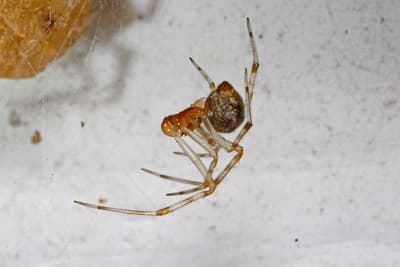
This breed is completely harmless but is known for spinning messy webs that are a mammoth task to remove.
They possess non-descript features, are brown in color and medium-sized.
Long-Bodied Cellar Spider
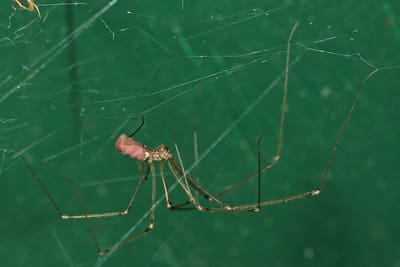
Due to their spindly, long legs and round abdomens, Long-Bodied Cellar Spiders are commonly mistaken for ‘Daddy-Long-Legs’, which technically isn’t a spider.
Despite their abnormal appearance, they are non-venomous.
They can be identified by their mixed light-brown, beige, or grey coloring.
Brown Recluse
The Brown Recluse, part of the Brown Spider family, is found in 14 different states across the United States, from Florida to Arizona. While this sub-species of spider typically prefer warmer climates; the effects of climate change has forced them to adapt to colder climates.
Be wary around these spiders because they release cytoxin, a harmful, cell-damaging toxin when they bite people, which is accompanied by nasty symptoms, such as nausea, fever, pain, and chills. Seek out medical attention if you or family members get bitten, especially with children who are prone to experiencing stronger reactions.
As its name suggests, these spiders are shy and won’t bite unless provoked. A provocation is generally the result of being caught in clothing; the bite is one way of protecting itself.
A Brown Recluse Spider is a distinctive light-brown color and can be identified by its oval-shaped body and violin-shaped markings on its back.
Jumping Spider

Jumping Spiders are compact, hairy and can be identified by their longer front legs.
While they might be non-venomous, their bites are deeply unpleasant, similar to bee stings.
Err on the side of caution if you are allergic to spiders.
Hobo Spider
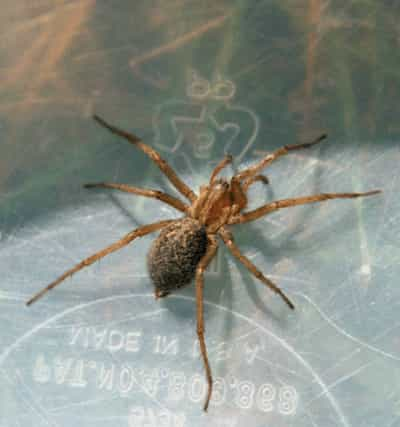
Described by experts as non-toxic, Hobo Spiders can turn aggressive when they or their nest comes under attack.
Bites are non-life-threatening but should be treated like any other bite to prevent a bacterial infection from occurring.
Wolf Spider
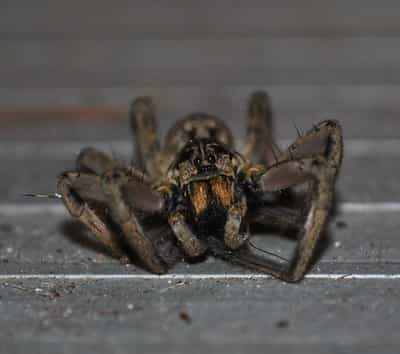
Wolf Spiders, commonly mistaken for Brown Recluse Spider, are harmless to humans but are well-known insect hunters.
If you have an overall pest problem, you are likely to see a few of these predators around.
Spider-lovers often keep Wolf Spiders as pets, but they are certainly a nuisance when they are unwanted.
A Summary On How to Get Rid of and Kill Spiders in Garages
Spiders have an imperative role to play in our ecosystems. They’re essential predators that feed off smaller insects, thus keeping the population of other pests under control.
That said, an infestation of spiders in your garage is not what you want either. Here’s a recap of what to do to control your arachnid problem:
- Keep your garage tidy and clean, throw stuff away that’s collecting dust.
- Vacuum weekly to keep your work space spider-free.
- Use artificial light sparingly. Not only can you look forward to a bug-free garage but also a decreased electricity bill.
- Natural repellents are effective insecticides that won’t harm your family or environment, consider using them.
- If you decide to use chemical pesticides, do your homework. Amazon.com is a great place to start looking for them. Try finding a product that does not contain many noxious chemical gases.
- Learn to identify the types of house spiders and call pest control if you think your garage populated by venomous creepy-crawlies.

